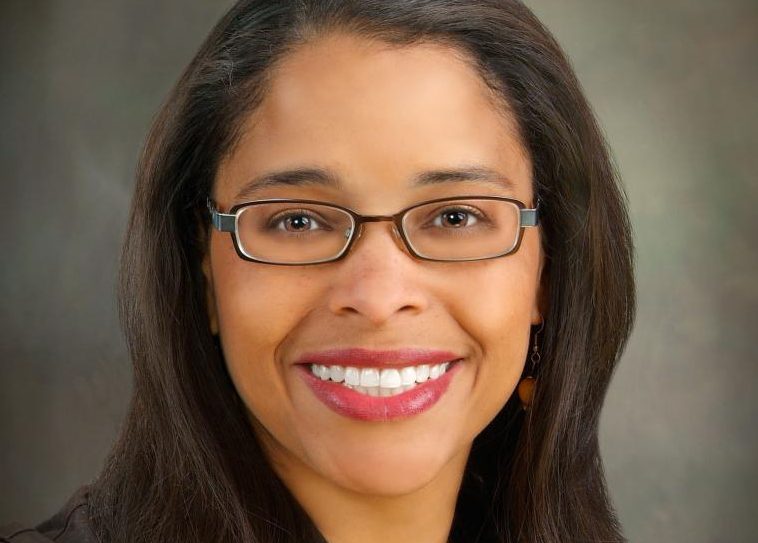Rebecca Vazquez-Skillings Named VP Finance, Administration
Rebecca Vazquez-Skillings was recently named the new Vice President for Finance and Administration.
Rebecca Vazquez-Skillings, the current vice president of Business Affairs at Otterbein University, was named Oberlin’s new vice president of Finance and Administration last week, pending the approval of the Board of Trustees during their June meeting. If the board approves, she will officially take over July 1.
Interim Vice President of Finance and Administration Alan Norton came out of retirement last May after Vice President of Finance Mike Frandsen’s departure last year. A 10-person search committee has searched for a candidate to permanently fill the position since October. That committee was headed by President Carmen Ambar and consisted of deans, faculty members, administrators, and former Student Senator and College senior Josh Koller.
For Vazquez-Skillings, Oberlin’s character and history of social justice are part of what drew her to the school.
“The national reputation of the institution is very intriguing to me,” she said. “It seems like a really interesting opportunity to be at an institution that’s really focused on mission. … When I look at the way the organization is run — the engagement of the students — it just seems like that is part of the ethos here.”
Vazquez-Skillings, a Cleveland native, graduated from Kenyon College with a Bachelor’s degree in International Studies and Latin American Political History. She then obtained a Master’s in Public Affairs from the John Glenn School of Public Affairs at The Ohio State University.
“I’m pleased that Rebecca is joining Oberlin at this exciting time,” Ambar wrote in an online statement. “In a pool of high-quality candidates, Rebecca rose to the top not just for the depth of her experience, but also for her ability to think creatively with us as Oberlin responds to the rapidly changing landscape of higher education.”
One of Vazquez-Skilling’s creative solutions in the past has been to partner with community organizations and businesses when approaching financial decisions — a strategy she hopes to bring to Oberlin.
“I think the key is partnership and learning through your partners — whether [they] be partners in the business sector, partners in the K-12 sector, partners from the local government — and thinking about what opportunities lie in partnership and thinking about what you might glean from looking at other sectors and not just focusing on what the rest of higher education is doing, but learning from a broader base,” she said. “But even internally, partners through shared governance are also important. I think you get better outcomes when you engage broadly.”
College junior and Student Senate Chair Kameron Dunbar said that Vazquez-Skilling’s leadership is much needed as Oberlin heads into this time of fiscal austerity and budget changes.
“I’m excited to welcome Rebecca Vazquez-Skillings to the Oberlin community,” Dunbar said. “In my time with Rebecca, I found her to have a deep understanding of the greater fiscal landscape of higher [education]. Her work will be challenging as she enters into this institution tackling a widening operational deficit. Though difficult, I look forward to seeing her work in developing a new budget model for Oberlin that depends less on direct student revenue, routine tuition raises, and an exploitative housing and dining model. Most importantly, I look forward to working with her on Student Senate in finding creative ways to engage the wider student body with Oberlin’s financial realities.”
Dunbar added that Vazquez-Skillings will be the third woman of color to join Oberlin’s senior staff this year, which he said is a welcome and much-needed change in Oberlin’s relatively homogenous administration.
“I’d also be remiss not to mention the hope I feel from the diversity of President Ambar’s senior staff,” he said. “Higher education is plagued by a lack of diversity in senior leadership, and it’s within our ethos to pioneer. Having women of color in senior leadership benefits us all; we should be grateful for this new era.”
Vazquez-Skilling said she hopes to be helpful to students by leading the Finance and Administration office with accessibility and communications in mind. Many students took issue with how her predecessor, Frandsen, handled issues of College finances — particularly toward the end of the year when he announced a tution hike, Oberlin Student Ccooperative Association financial aid adjustments, and room and board changes in an email, sparking campus protests and anxiety.
“I think being intentional is very important,” Vazquez-Skillings said. “When I was at Ohio University I had frequent meetings with the student newspaper. And I [currently] meet regularly with student government. I think student engagement is very important and constructive.”





